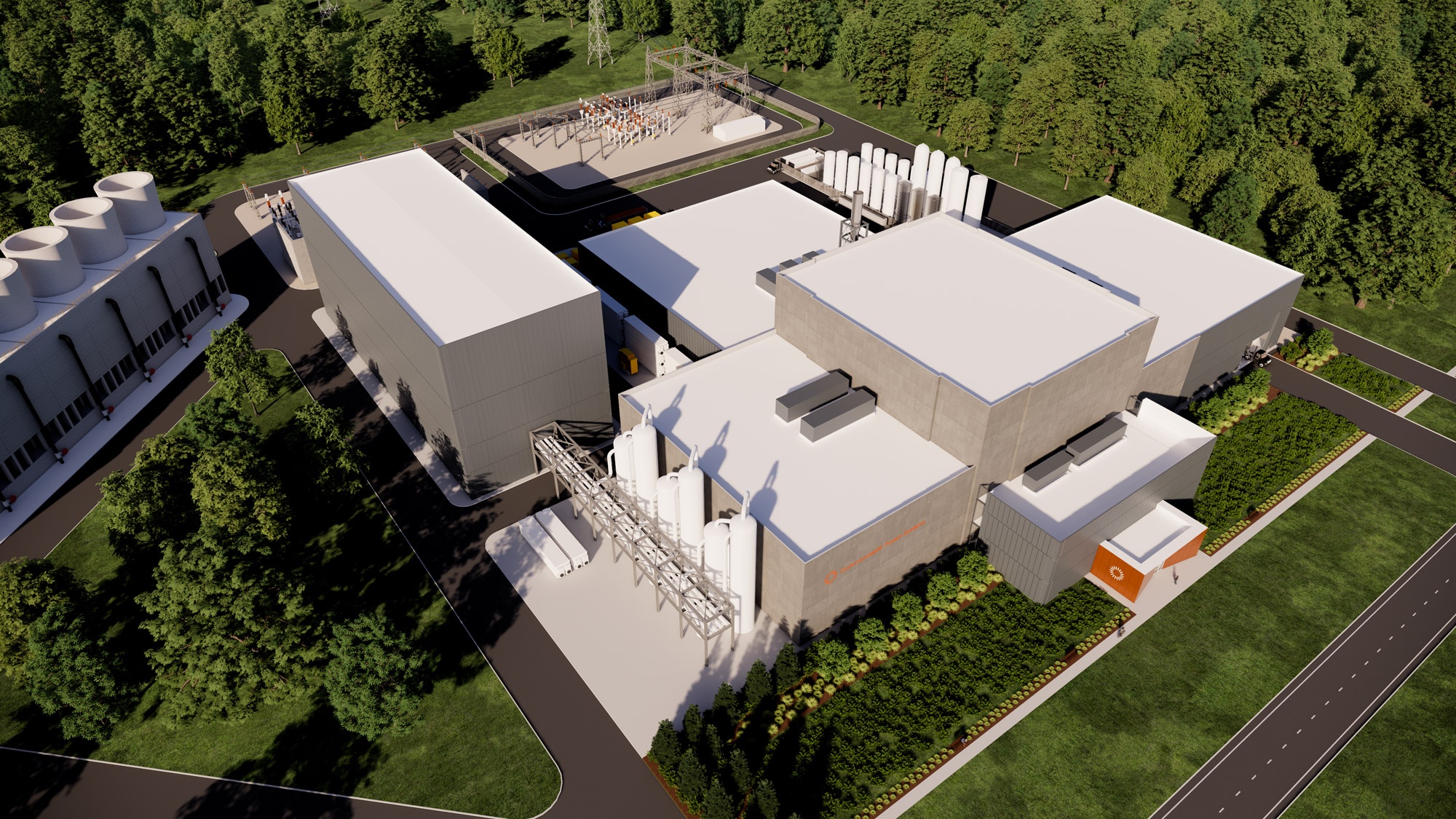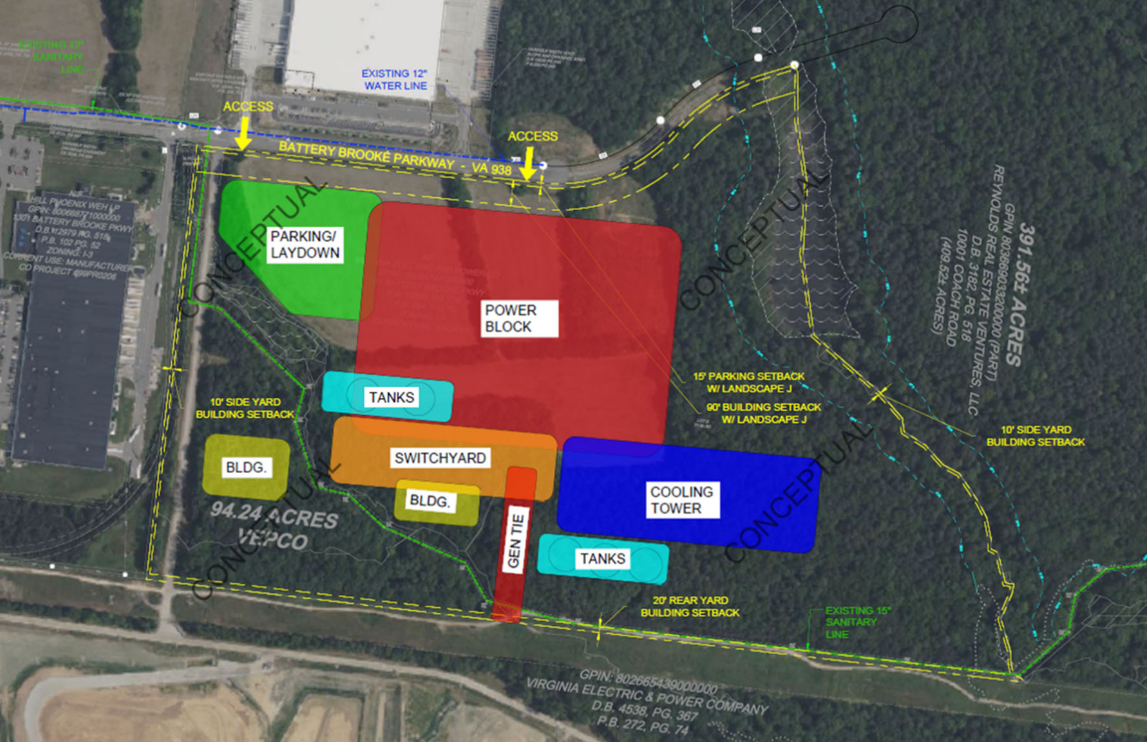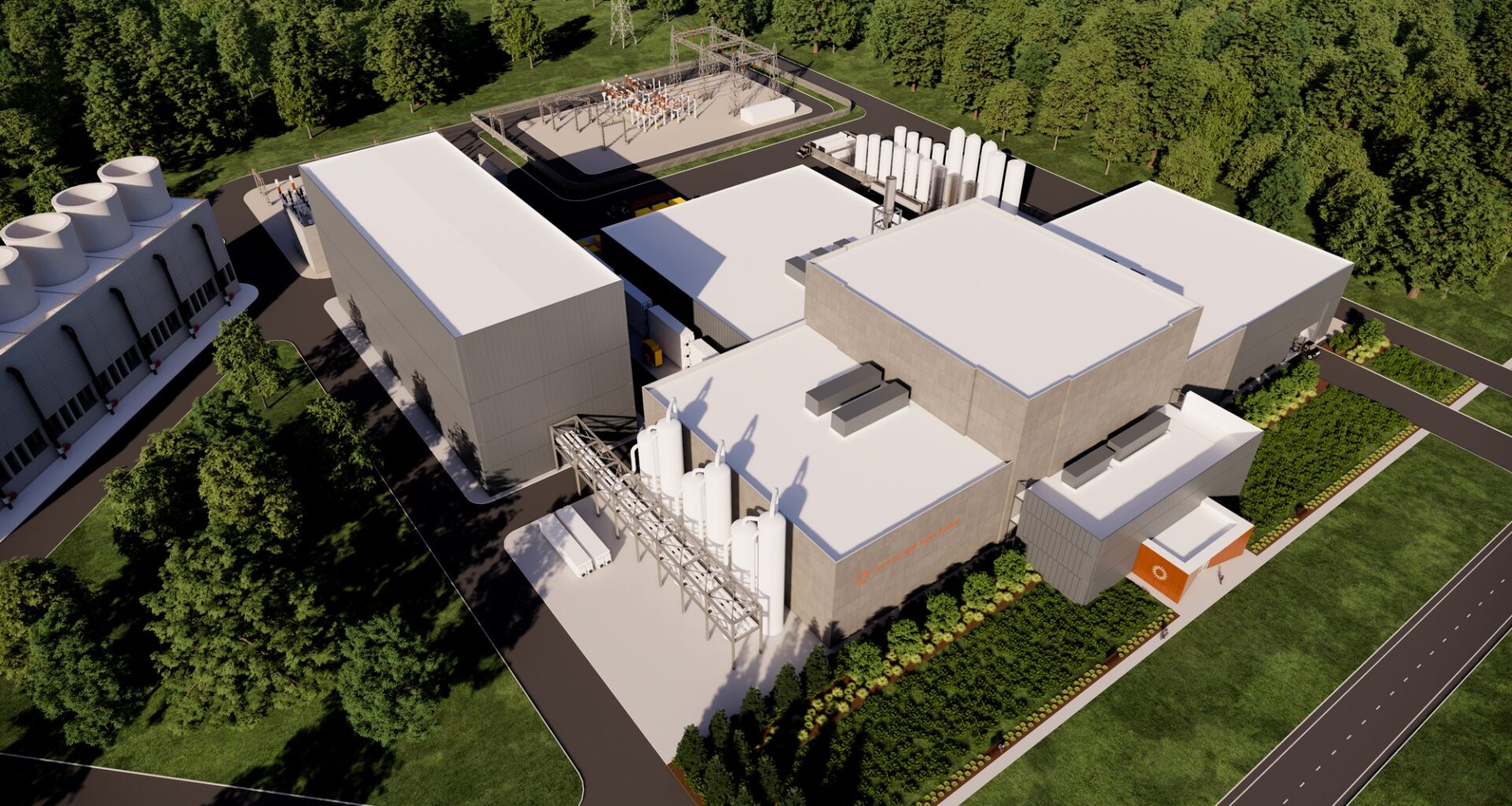
A rendering of the Commonwealth Fusion Systems nuclear fusion plant proposed to be built in Chesterfield. A conditional-use permit for the project was recently endorsed by the planning commission. (BizSense file)
What could be the world’s first commercial-scale fusion power plant is moving through the local approval process in Chesterfield County.
The county planning commission this week unanimously voted to recommend approval of a conditional-use permit sought by Commonwealth Fusion Systems for a nuclear fusion facility that would be built at 1201 Battery Brooke Parkway.
The multibillion-dollar facility would be constructed on 25 to 40 acres of an overall 94-acre property owned by Dominion Energy. Commonwealth Fusion has signed a lease option for the site, which is near Chester. The 400-megawatt nuclear fusion plant would be able to generate enough electricity to power the equivalent of about 150,000 homes.
Commonwealth Fusion would own and finance the facility, according to a presentation at Wednesday’s planning meeting by Ann Neil Cosby of law firm GreeneHurlocker, who is representing the company in the zoning approval process.
Timmons Group is the project’s civil engineer. A general contractor and architecture firm haven’t been selected for the project yet.
Commonwealth Fusion has previously shared that the power plant, which is being called ARC, would be connected to the electric grid and sell power to commercial users through PJM, a regional power transmission organization that runs an electrical power market in 13 states, including Virginia and Washington, D.C.
Half of the facility’s future output has already been claimed by Google. The tech giant and power company announced a power-purchase agreement in late June in which Google would buy 200 megawatts of electricity from the future facility. Terms of that deal weren’t disclosed. Google has been an investor in Commonwealth Fusion since 2021, according to a power company news release.
During the public hearing that preceded the commissioners’ vote this week, seven people spoke in favor of the power plant. They highlighted public outreach efforts by the company to share information about the project, as well as the potential economic impact of the power plant, which is expected to have 150 full-time employees when it opens.
Among the proponents were Chesterfield Chamber President Karen Webb and Hal Hamner of Atlantic Constructors, which has its headquarters near the project site.
One county resident spoke against the project, noting that it would generate nuclear waste among other concerns.
Compared with the atom-splitting process of nuclear fission, nuclear fusion is considered a safer energy source because it doesn’t result in long-lived, highly radioactive waste. Nuclear fusion is the collision and fusion of atomic nuclei, which is the same reaction that takes place in the sun and generates its energy. The process doesn’t cause meltdowns or the creation of greenhouse gases.

A conceptual site plan of the 400-megawatt nuclear fusion power plant that’s planned near Chester. (County documents)
The company filed its zoning request tied to the project in the spring. Following the planning commission’s review, the project now heads to the Chesterfield Board of Supervisors for a final local zoning decision. As a condition of the permit, only fusion power facilities could be operated on the site. The project will also require state and federal approvals.
The facility is anticipated to break ground in the late 2020s and become operational in the early 2030s, company spokeswoman Christine Dunn said in an email.
As Commonwealth Fusion gets closer to securing local zoning approval for its Chesterfield project, the company continues work on a prototype fusion machine being built at its Massachusetts headquarters. Assembly of the prototype, called SPARC, started with the installation of a 75-ton stainless steel base for the device earlier this year and is about 65% completed, Dunn said.
SPARC is a tokamak, which is a donut-shaped device that uses magnetic fields to create plasma particles hot enough to fuse together, creating the conditions necessary for nuclear fusion. SPARC is designed to generate net fusion power, and its success would be a step closer to the company’s ultimate goal of a commercial-scale fusion plant in Chesterfield. Replicating the fusion process with human-made technology at a commercial scale has been studied for decades, and the firm and other companies around the world are racing to be the first to figure it out.
Commonwealth Fusion calls itself the largest private fusion company in the world. The company says it has more than 1,000 employees and has raised more than $2 billion from investors since it was founded in 2018. The company was spun out of MIT as a business venture to commercialize fusion power.
The company’s Chesterfield project was announced in late 2024. During the event, Gov. Glenn Youngkin called the proposed facility a “multibillion-dollar” project. The company declined to share a cost estimate for the facility this week, because it is still finalizing design plans.
Print Article
